Given the changes in campaign finance laws this election, it is more useful to look at top contributing companies, many of whom are multi-national, crossing over multiple industries, rather than at total contributions from specific industries. Gradually, a picture of campaign influence starts to emerge. No doubt it will change as the campaign progresses through next year, and individual candidates’ fortunes rise and fall—along with those of Washington lobbyists.
Here are examples of some of the largest corporations making big donations to favored candidates:
- Resorts and casinos, such as the Las Vegas Sands, owned by Sheldon Adelson, known to support conservative Republican causes.
- AT&T contributes heavily to both sides of the political scene, though they lean toward Republicans.
- Goldman Sachs, an equal opportunity donor to both parties, representing Wall Street and finance.
- Microsoft, for the internet/tech sector. Heavy donors to Obama in 2012.
- Google, giving slightly more to Democrats than Republicans.
- Koch Industries, a multi-national corporation in energy production, chemical manufacturing, ranching, and more. Owned by the Koch Brothers, together they donated $400 million to conservative Republicans in the 2012 election.
- Pfizer, representing pharmaceuticals, heavily supports Republican conservative issues, giving over $2 million in 2014.
- Lockheed Martin and defense industry contractors rank high, with a near equal split between the two main parties.
- Big oil is represented by Chevron, which contributes as much as 82% of its funds to conservative Republican issues.1
Lobbying for Republican Candidates
The relatively new role of “lobbyist bundler” has gained greater importance in the 2016 presidential election, as these top lobbyists had raised around $228,000 for Jeb Bush by July 2015. This strong showing represents a key portion of the Bush campaign’s fundraising success to date, and illustrates the ways top lobbying firms influence politics in Washington DC.1
Bundlers are required to disclose their identities only if they register with the federal government as lobbyists, and they raise more than the benchmark $17,600—bundling smaller contributions into larger amounts. This requirement of disclosure allows us to examine the major sources of lobbying support in this election, and to anticipate what kind of industries or businesses may have access to the next president.
Bundlers for Jeb Bush include officials of the Mortgage Banking Association, the National Association of Wholesaler-Distributors, and DLA Piper, a major DC law firm, among others.2 Individual lobbyists may contribute up to the limit of $2,700, as many have done. Professional lobbyists working on behalf of large corporations who have contributed to the Bush effort, include those on staff for Hewlett-Packard, Microsoft, United Technologies, Goldman Sachs, and Verizon Communications.2
Lobbying for the Democrats
The level of financial gain a professional lobbying group might expect from the 2016 election is a good indicator of how important their role is in the election. As an example, the head of UK-based lobbying firm WPP Group, Sir Martin Sorrell, commented in a discussion on the subject that “…2016 should be a bumper year…”3
WPP Group perfectly illustrates the complex relationships among Washington lobbyists, candidates, and Super PACs (political action committees). A WPP-owned PR firm is advising the Ready for Hillary Super PAC, while executives of WPP-owned Dewey Square Group, a political affairs and lobbying group, are supervising what is referred to as Hillary’s “shadow campaign.” And there’s more—managing director of the Washington lobbying firm Glover Park Group, also WPP-owned, has organized fundraising for the Clinton Super PAC.3
Super PACs
The 2016 campaign is unfolding in a post-Citizens United environment, with more channels open for larger contributions from mega-donors. The 2010 decision following the Citizens United case created Super PACs, establishing that freedom of speech included the right of corporations and unions to engage in political spending without legislative limits. In contrast to the rules for lobbyists, Super PAC donors need not be identified, as long as they are not donating directly to a campaign.4
Sources:
- http://www.cheatsheet.com/business/10-companies-likely-to-bankroll-2016-presidential-campaigns.html/?a=viewall
- http://www.washingtonpost.com/news/powerpost/wp/2015/07/15/lobbyists-bundle-nearly-a-quarter-million-dollars-for-jeb-bush/
- https://theintercept.com/2015/03/04/lobbyists-2016-clinton-republican-campaigns/
- https://www.boundless.com/political-science/textbooks/boundless-political-science-textbook/congress-11/how-congressmen-decide-82/interest-groups-lobbyists-and-pacs-451-10965/

